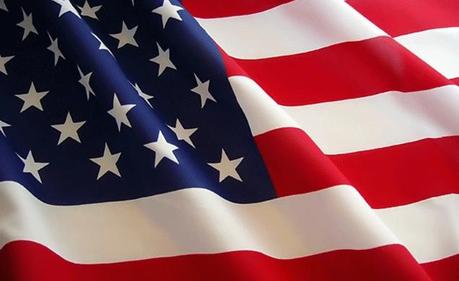
Fundamentalist christians are a strange lot (as are fundamentalists of any religion). Many of them believe a person cannot be patriotic -- cannot be a good American, without believing in god (specifically the christian version of god). I just had one tell me this in this last week. They seem to forget that this country is founded on a secular Constitution, which guarantees freedom of religion (including the right to be free from religion). They also ignore the fact that there are atheists in foxholes, and many non-believers have given their lives to defend this country and its Constitution.
Fortunately, most Americans don't believe that. They understand that there are good and loyal Americans of all religious faiths, and of no religious faith. I was gratified to see the editorial written and published on December 7th by the editorial staff of the Los Angeles Times, which states the same. I post a part of that editorial below:
It might seem paradoxical that so many Americans consider religious faith — and sometimes a particular faith — as a necessary component of American identity. After all, the Constitution says that there shall be “no religious test” for holding public office, and the 1st Amendment prohibits Congress from legislating an “establishment of religion,” a stricture that the Supreme Court has extended to state governments. Thomas Jefferson famously referred to a “wall of separation” between church and state, and the metaphor is among the most recognizable in American life. That wall, it's true, has always been a porous one. Some breaches are less objectionable than others. Scholars have a term for the sort of pro forma religious language that is customary in presidential addresses and state funerals: “ceremonial deism.” But there are also attempts to equate Americanness with specific faiths, such as the campaign in Mississippi and the rash of bills in statehouses targeting the phantom menace of sharia law infiltrating the judicial system. We believe that entanglement of religion and government runs the risk of marginalizing citizens who don't share the religion of the majority. That is especially a concern at a time of growing religious diversity and an increase in the number of Americans who tell pollsters they aren't affiliated with any religion. In a 2012 Pew Research Center poll, 19.6% of adults said they were “religiously unaffiliated.” So what should be done to solidify Jefferson's wall — other than rejecting initiatives such as the one in Mississippi? At a minimum, officials should resist identifying patriotism with any particular religion. It's gratifying that official chaplains in the U.S. Congress, although they are Christian clergymen, in general have chosen not to offer distinctively Christian prayers. To his credit, Obama, like President George W. Bush before him, has reached out to Muslims as well as to Jews and Christians. The White House is now the scene of an annual Iftar dinner marking the end of Ramadan. But equal treatment for organized religions, while it avoids the evil of “establishing” a single faith, can still carry the message that those with no religious beliefs at all are second-class citizens. That is why this page has opposed even nonsectarian prayers at meetings of local government bodies. Political leaders, especially those who frequently engage in religious language, should acknowledge that there is no religious test for being a good American. Obama did just that in his first inaugural address when he said that “we are a nation of Christians and Muslims, Jews and Hindus and nonbelievers.” We'd like to see more public officials recognize that reality; one way of doing that is to include nonreligious speakers in solemn public events. (That wasn't done when public officials, including Obama, came together last year to honor the victims of the Boston Marathon bombings, despite a request that the speakers include a representative from the Secular Coalition for America.) Organized religion undeniably plays an important and often constructive role in the lives of many Americans. Religious figures have been instrumental in political causes from abolitionism to the civil rights movement. No one should seek to banish them from political debate. But we reject the notion that religious faith in general or adherence to a particular creed is an essential attribute of being American. The only creed to which a citizen of this country should have to pay homage is the Constitution.

